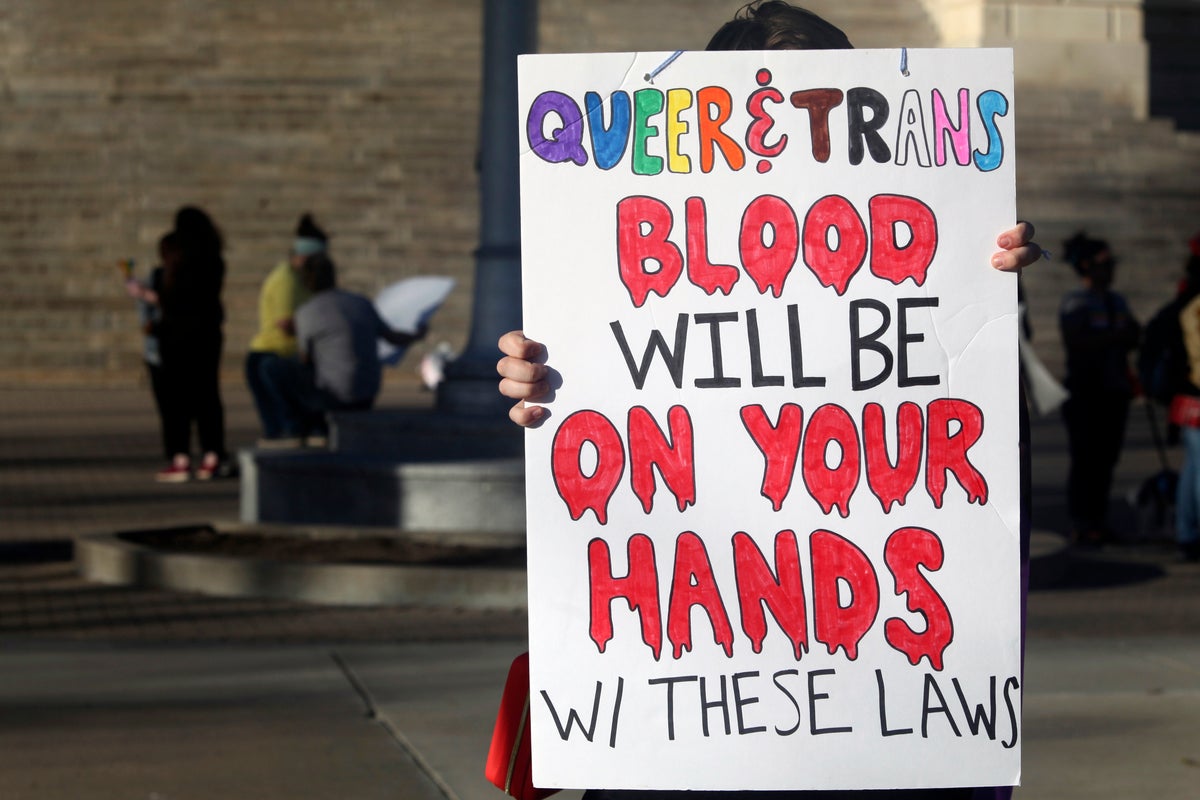
Kansas will no longer change transgender people's birth certificates to reflect their gender identities, the state health department said Friday, citing a new law that prevents the state from legally recognizing those identities.
The decision from the state Department of Health and Environment makes Kansas one of a handful of states that won't change transgender people's birth certificates. It already was among the few states that don't change the gender marker on transgender people's driver's licenses.
Those decisions reverse policies that Democratic Gov. Laura Kelly's administration set when she took office in 2019. They came in response to court filings by conservative Republican state Attorney General Kris Kobach to enforce the new state law. Enacted by the GOP-controlled Legislature over Kelly's veto, it took effect July 1 and defines male and female based only on the sex assigned to a person at birth.
“As I’ve said before, the state should not discriminate or encroach into Kansans’ personal lives -– it’s wrong, it’s bad for business," Kelly said in a statement. “However, I am committed to following the law.”
The new Kansas law was based on a proposal from several national anti-trans groups and was part of a wave of measures rolling back transgender rights in Republican-controlled statehouses across the U.S. Montana, Oklahoma and Tennessee also don't allow transgender residents to change their birth certificates, and Montana and Tennessee don't allow driver's licenses changes.
From 2019 through June 2023, more than 900 Kansas residents changed the gender markers on their birth certificates and nearly 400 changed their driver's licenses. Both documents list a person's “sex.”
Kobach issued a legal opinion in late June saying that not only does the new law prevent such changes, it requires the state to reverse previous changes to its records. The Department of Health and Environment said that transgender people who have changed their birth certificates can keep those documents, but new copies will revert to listing the sex assigned at birth.
Kobach said he is pleased that Kelly's administration is complying with the new law, adding in a statement, “The intent of Kansas legislators was clear.”
In fact, supporters of the bill touted it as a proposed bathroom law to keep transgender women and girls from using women's and girls' bathrooms and locker rooms in schools and other public spaces. The law does not contain any specific mechanism for enforcing that policy.
But LGBTQ-rights advocates always saw the measure as designed to legally erase transgender people's identities and urged them to change their driver's licenses and birth certificates before it took effect.







